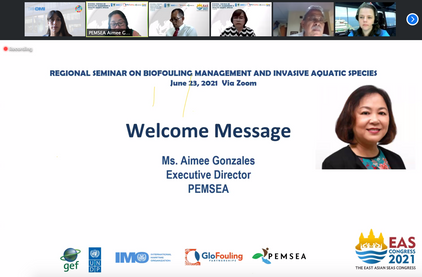Approaching biofouling management from regional perspectives
- John Alonso
- Jun 24, 2021
- 2 min read
The International Maritime Organization and its GloFouling Partnerships project have conducted three seminars to increase awareness among government representatives about the role played by marine biofouling in relation to invasive aquatic species and greenhouse gas emissions.
The seminars are intended as the first step towards the development of regional strategies for the South Asian seas, the Red Sea and Gulf of Aden and the East Asian seas, with a view to increase implementation of the IMO Biofouling Guidelines and facilitate the adoption of harmonized national measures that would enhance how biofouling is managed within all maritime industries.
The underlying theme of the three seminars was to transmit the need for implementation of the voluntary IMO Guidelines as a means to prevent the transfer of invasive aquatic species, one of the major threats to the oceans’ biodiversity.
The South Asia Co-operative Environment Programme (SACEP) organized the first seminar on 16 June, with participation from Bangladesh, India, Maldives, Pakistan and Sri Lanka. Discussions during the meeting confirmed the need to draw from the experience and research already accumulated in the region on invasive aquatic species.
One day later, it was the turn of the Red Sea and Gulf of Aden region. The event was held on 17 June, organized in collaboration with PERSGA, the Regional Organization for Conservation of the Environment of the Red Sea and Gulf of Aden. Attendance included representatives from Djibouti, Egypt, Jordan, Sudan, Somalia and Yemen. Participants agreed on the importance of a regional hub for collaboration and knowledge-sharing and agreed to follow up discussions with a second meeting to be organized later in the year or in early 2022.
More recently, the Secretariat of Partnerships in Environmental Management for the Seas of East Asia (PEMSEA) led the delivery of the last seminar in East Asia, on 23 June, with representatives from Cambodia, Indonesia, Japan, Malaysia, Mongolia, Philippines, Singapore, Thailand and Viet Nam. The meeting agreed that there was a need to develop national policy to address biofouling risk, with coordination between governments for technology and information sharing as key elements for regional collaboration













Comments